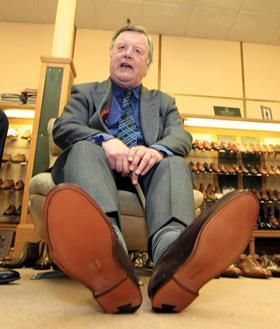The pageant of living history that is the House of Lords Constitution Committee’s inquiry into the role of the lord chancellor and law officers continues to entertain. This week’s guests were two former lord chancellors, who seem to have had very different experiences in the role.
Appearing remotely, thanks to train problems, David Gauke (2018-19) spoke of ‘a change in political culture in terms of treaty obligations’. Perhaps Gauke has a very expensive home webcam set-up, but he does seem to have shed 10 years in age since laying down the burden of office.

But even in an open-neck shirt in his living room, Gauke could never look as relaxed as his co-witness who appeared in person. Lord Clarke of Nottingham (Ken Clarke, pictured, 2010-12) appeared utterly at ease as he sprawled across three chairs fondly recalling his time as David Cameron’s lord chancellor. It was a kinder, gentler political age (was it?), in which concerns of national sovereignty seemed ‘almost comically irrelevant’ under the benign rule of international law.
And the question of where a lord chancellor’s responsibility lies when a government deliberately seeks to breach that law? ‘When I was lord chancellor no big issue of this kind applied, there was nothing remotely like that.’
But what about the Strasbourg ruling on prisoner voting, Lord Falconer of Thoroton, another big beast from the past, pressed. ‘We postponed pursuing implementation of that,’ Clarke recalled. Simples. Obiter was reminded of the old Westminster saying, as Clarke marched in succession through the great offices of state, that the worst job in government was always the one that Ken held last.































No comments yet